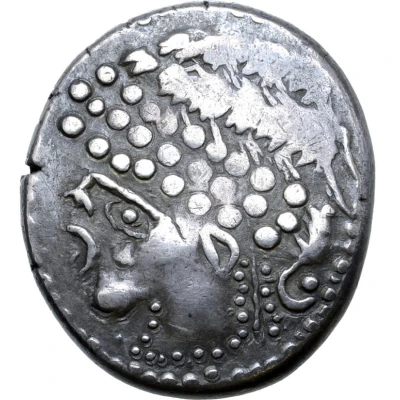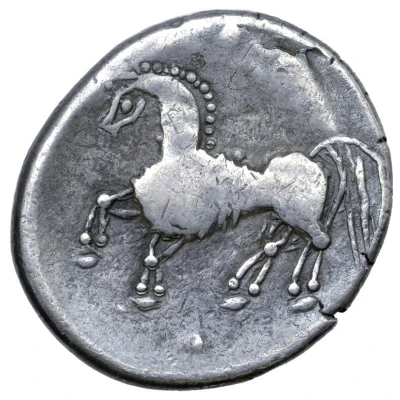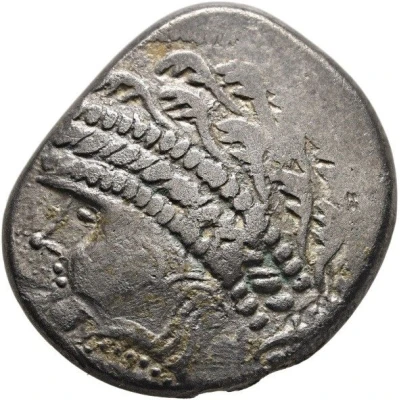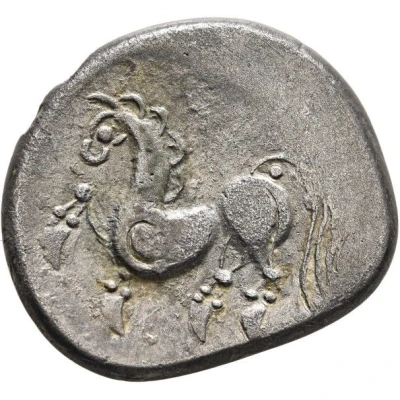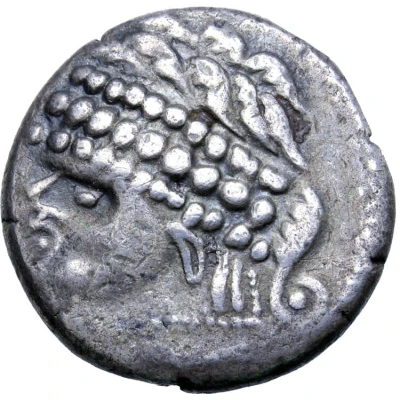
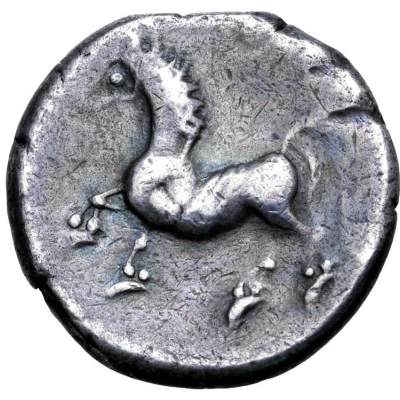

© Roma Numismatics Limited
Tetradrachm Freie Samobor C Type 200 BC - 1 BC
| Silver | 7.67 g | 22 mm |
| Issuer | East Noricum (Kingdom of Noricum) |
|---|---|
| Type | Standard circulation coin |
| Years | 200 BC - 1 BC |
| Value | Tetradrachm (4) |
| Currency | Drachm |
| Composition | Silver |
| Weight | 7.67 g |
| Diameter | 22 mm |
| Shape | Round (irregular) |
| Technique | Hammered |
| Orientation | Variable alignment ↺ |
| Demonetized | Yes |
| Updated | 2024-10-09 |
| Numista | N#190291 |
|---|---|
| Rarity index | 100% |
Reverse
Horse prancing to left.
Comment
Göbl, TKN pl. 40, 67 (this coin) [86/179].History of the piece in the main image:
• Hermann Lanz Collection; published in Kostial #212;
Recorded Sales:
• Roma Numismatics Ltd, Auction XVIII, 29 September 2019, lot 84. Sold for 1'400 GBP in VF grade.
Examples of this type with variations:
• Example #1 (7.67g, 22mm, 10h, Very Fine):
© Image courtesy of Roma Numismatics Limited
◦ Ex-Hermann Lanz Collection; published in Michaela Kostial - "Kelten im Osten. Gold und Silber der Kelten in Mittel und Osteuropa, Sammlung Lanz", München, 1997, #212;
◦ Auctioned by Roma Numismatics Ltd, Auction XVIII, 29 September 2019, lot 84. Sold for 1'400 GBP.
• Example #2 (9.46g, 23mm, 12h, Very Fine):
© Image courtesy of Roma Numismatics Limited
◦ Ex-Hermann Lanz Collection; published in Michaela Kostial - "Kelten im Osten. Gold und Silber der Kelten in Mittel und Osteuropa, Sammlung Lanz", München, 1997, #213;
◦ Exhibited by the Staatlichen Münzsammlung München at the 1997 International Numismatic Congress in Berlin; at the Berliner Bank also in 1997; also exhibited at the Luitpoldblock Palmengarten, Munich in 2003 (exhibition #180[reverse]).
◦ Auctioned by Roma Numismatics Ltd, Auction XVII, 28 March 2019, Lot 80. Sold for 320 GBP.
Interesting fact
One interesting fact about the Tetradrachm coin from East Noricum is that it features a unique blend of Greek and Celtic influences in its design. The coin's obverse side bears the image of a Celtic warrior, while the reverse side features the image of a Greek goddess, highlighting the cultural exchange and fusion that occurred during the period of Celtic-Greek interaction in the region.
